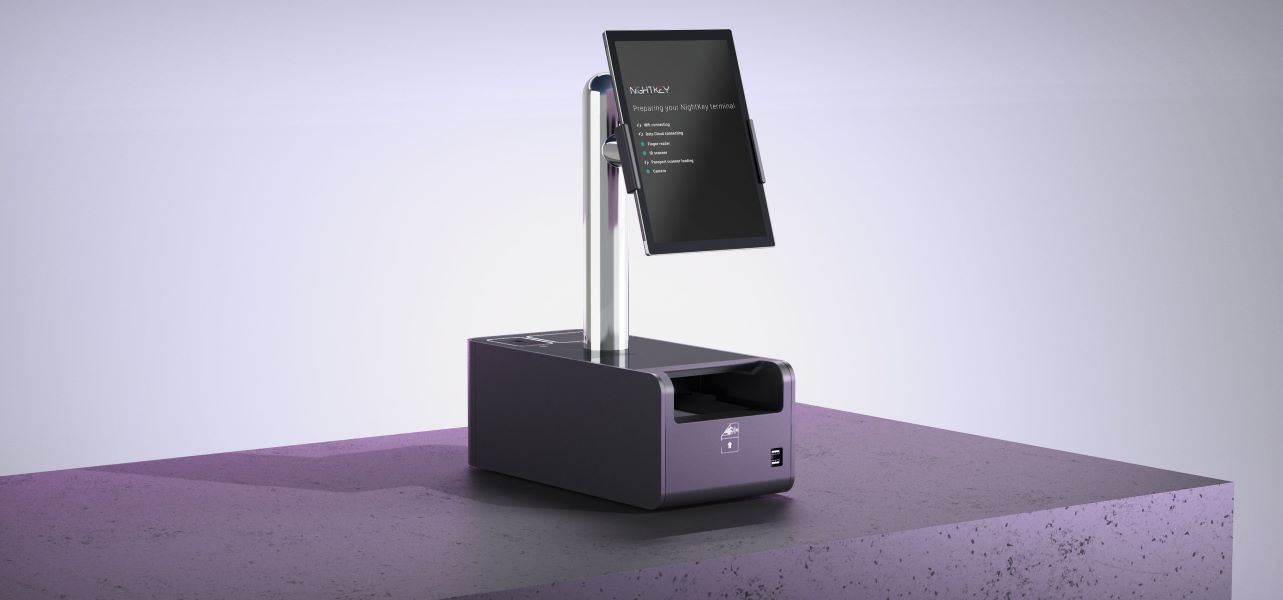With a Good Design Australia Award under its belt, cutting-edge data management system Nightkey is the easy and trusted way to reward safe fun.
The idea for the latest state-of the-art sign-in technology didn’t come from an IT expert.
NightKey came from a nightclub owner more than 20 years ago when he was faced with 2 identity dilemmas.
One was from a regular patron upset that she had to keep showing her driver’s licence to prove her age and the other arose from an incident in the club later that night when a customer on the banned list was let in due to human error.
“There were no such things as ID scanners back then, just the humble spreadsheet with details that were written down and often inaccurate,” said NightKey Chief Technology Officer Benjamin Smith.
First developed in 2005, NightKey is the brainchild of club owner turned CEO Mario Madaffari who over the years has built a biometric customer identity management tool to combat the anti-social challenges faced by the hospitality industry.
“Basically, NightKey allows your front of house or security team to accurately identify a customer in seconds, before they enter your business or venue.”
Now with a grant from the first round of the Northern Territory (NT) Government’s Digital Partnership Program the cutting-edge solution has been completely redeveloped in the Territory by DEVA Darwin, in partnership with local businesses Professional IT Solutions and SRA Information Technology.
“With any technology it becomes obsolete and antiquated over time, so the entire platform has been rebuilt to make sure its compatible with the latest digital technologies, such as digital ID issued in other jurisdictions, and that security protocols are watertight,” said Benjamin.
“We see the redevelopment of NightKey as helping create an immediate employment and economic boost in the Territory, and this grant has put us on the path to achieving this.”
Through NightKey, the team also wanted to tackle societal challenges more broadly by providing an open platform for use in a number of industries, including the next evolution of the Banned Drinkers Register and working with anti-social behaviour in remote communities.
“We have already established relationships with community organisations to highlight the value NightKey can provide in reducing anti-social elements.”
Benjamin was quick to point out, however, that NightKey was not a tool for punishment but instead could be used for education purposes.
“If we get to youth early enough there is a level of education and early intervention where we can sit down with them to discuss the reasons why they have been excluded from a venue and offer them an opportunity to come back early with a plan in place to ensure such behaviours don’t occur again.”
“The data recorded also provides really valuable business metrics so a club in a community setting, for example, may let a patron back in but they just can’t drink.”
The system, which recently won a Good Design Australia award, can also be integrated with other programs such as point of sale, loyalty programs and targeted marketing (with the customer’s approval). It has also been further adjusted to be more secure than QR codes.
“You can significantly reduce the wait time in a queue for customers, make life easier for your staff, collect information for contact tracing, and gain insights into your customer base - including rewarding VIPs, ensuring the music choice suits the age of your clientele and identifying troublemakers,” said Benjamin.
Like many innovations there have been drawbacks, sleepless nights and countless trials. Still, Benjamin pointed out that “the Territory has been a great environment for development and ongoing maintenance and support”.
“The government grant has allowed us to build relationships with the police, local businesses, institutions, councils and remote communities as well as venues and the hospitality industry.
“The Territory has been a great place to test the product. Given the multitude of challenges presented in the NT, if you can get things to work here you can get them to work anywhere.”

